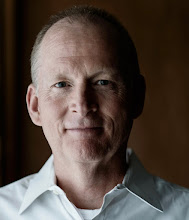 The following thoughts were shared by Steve Saccone in a recent post. Steve's words provided me with a great deal to think about.
The following thoughts were shared by Steve Saccone in a recent post. Steve's words provided me with a great deal to think about.When it comes to the impact we long to have as human beings, we must be intelligent in how we approach our relationships.
To build and develop true relational influence, we have to be invited into someone’s relational space versus what we sometimes do, which is invade someone’s relational space.
By "relational space," I mean that invisible dynamic inside of people where they either open themselves to someone else’s advice… or resist it. For instance, if someone refuses to allow us into his "relational space," that means he is resisting our advice. In leadership, we often don't know exactly how to handle this interpersonal dynamic. In the process, if we are the invader of someone’s space, we break trust, lose credibility, and diminish our capacity to influence. That’s why we must learn how to navigate the space between you and another.
Let’s think about this dynamic in a different way. Imagine hiring a personal trainer at a local gym to help you get in shape. By hiring him, you give him permission to coach you, offer his advice, and even push you to exercise with greater effort and focus. You are inviting him into your “space.”
On the contrary, imagine seeing a friend at the mall. After saying hello, he verbally assesses your physical health, explains to you how much exercise you need, and then commands you to "do 50 push-ups." I’d be looking for the hidden camera.
This metaphor may sound bizarre, but enter the world of relationships, and people often ignore this same principle. We try to advise people who haven’t yet invited us into their relational space. To them, our approach seems bizarre because we're trying to impose on them something they've never invited us to give.
Maybe this has happened with a person you’re trying to mentor, but you haven't established a mentoring relationship. Or maybe it’s happened with someone you supervise at work, but you've wrongly assumed they want your input. Just because you live in close relational proximity, and just because you have a position of authority, doesn't mean you've established credibility, nor a voice of influence in their life.
Even if our motives are sincere in wanting to make a positive impact, when we force our way into a person’s relational space, they sense relational invasion…and will usually resist. They resist because they feel we’re barging in without knocking. They haven’t opened the door and welcomed us in.
As leaders, we will become more relationally intelligent if we refuse to consistently invade people’s space. Instead, when we wait to be invited our credibility builds and our influence capacity expands.
One of the primary ways to identify when someone is inviting us in comes down to our ability to read and discern non-verbal, invisible cues that people emit. Everyone sends them out, thus communicating whether they’re open or closed off to us. This is revealed primarily through body language and the emotional energy a person emits. In simple terms, someone could maintain a welcoming and open spirit, or they could emit an aloof and distant one. People tell us without words whether they want our advice or input. To be relationally intelligent, we must pay close attention to these cues. Over time, this will help us build relational capital and expand our influence.
I'm not advocating for relational passivity here. And, this doesn't mean there aren't moments when we push through resistance and challenge people to grow and change. It’s just that in many circles, we rarely acknowledge this dynamic, and we continually overlook these cues, often forcing our agenda upon someone and eroding trust.
Since Jesus doesn't force Himself on people neither should we. But His posture is always bent toward serving others, and He’s a model we can emulate in our conversations.

